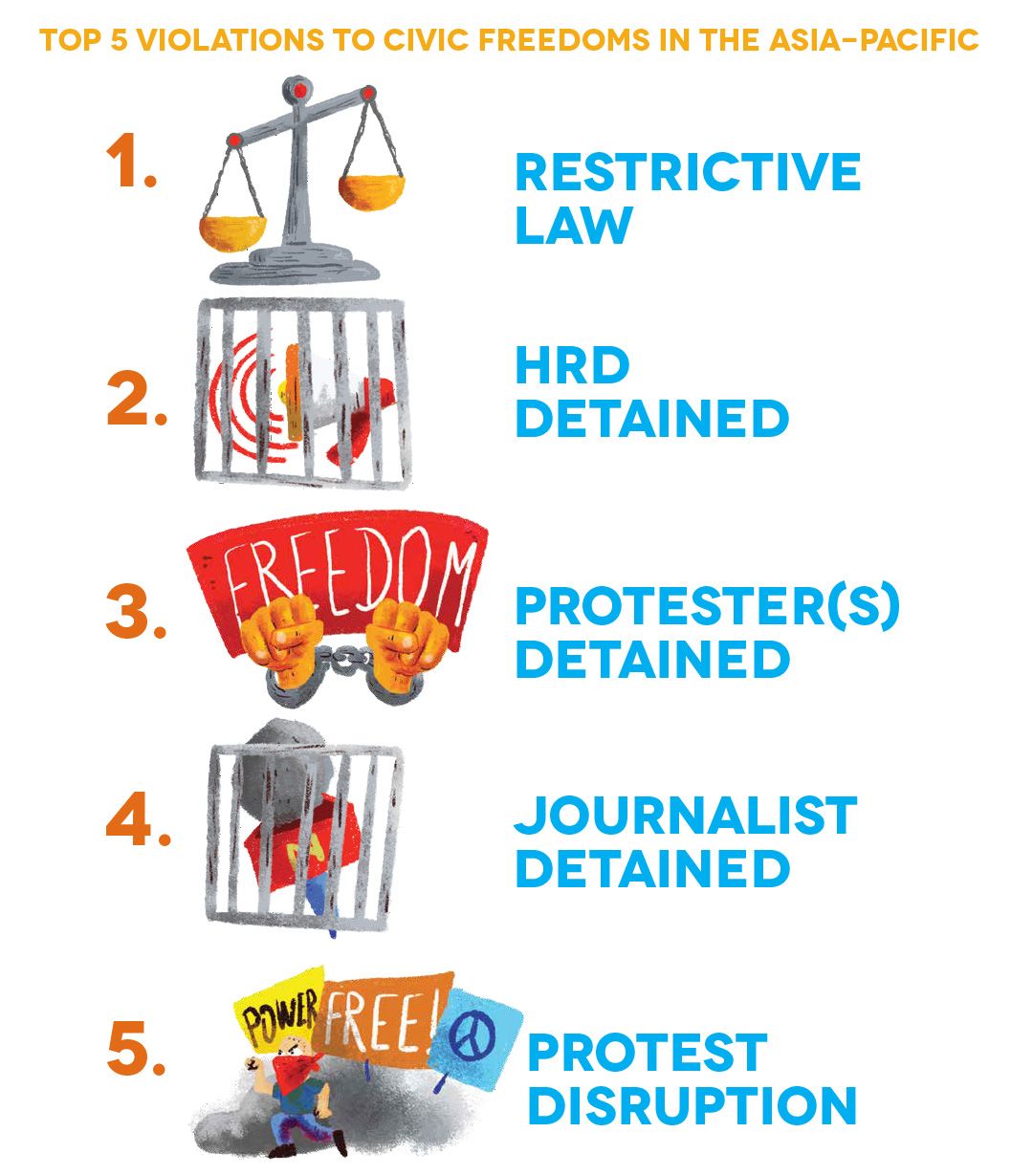Too Fast, Too Furious: Việt Nam's War on Flat-Rate Taxes
Minh Viễn wrote this Vietnamese article, published in Luật Khoa Magazine on June 20, 2025. A new government policy is

Vietnam continues to be ranked as “ closed” in CIVICUS Monitor’s 2021 Report, People Power Under Attack, released on December 8, 2021. The report, which is the result of the collaborative effort of over 20 civil society organizations and activists, “aims to provide a comprehensive assessment of the conditions for civil society within countries and over time.”
The information provided by these organizations and other research partners is then verified and triangulated by the CIVICUS team in order to provide a comprehensive, accurate, and truthful look into the improvement or deterioration of the civic space of a particular nation.
Countries are then classified and grouped according to the current state of their civic space, which is defined as “the respect in policy, law and practice for the freedoms of association, peaceful assembly and expression and the extent to which the state protects these fundamental rights.”
Open countries have governments that “[enable] and [safeguard] the enjoyment of civic space,” tolerate criticism from individuals and civil society groups, and are open to dialogue with the public. Likewise, there is no censorship of online content and the media remains open and free. Government information is also accessible to the public and the state adheres to the standards of international law.
Nations classified as narrowed generally allow their citizens to express their rights to freedom of association, peaceful assembly, and expression, however, some violations do take place. The media is generally free but the government can sometimes undermine press freedom through the passage of strict regulations or laws.
In obstructed nations, individuals or groups who hold power “impose a combination of legal and practical constraints on the full enjoyment of fundamental rights” through the use of “illegal surveillance, bureaucratic harassment, and demeaning public statements.” Protests are also often met with more stringent measures of control such as the liberal use of “excessive force by law enforcement agencies, including rubber bullets, tear gas and baton [charges].” Independent journalists also have to practice self-censorship in order to avoid physical attack by state forces or criminal defamation charges.
Repressed countries suffer from severe limitations to their civic space. Individuals or groups who criticize the ruling government “risk surveillance, harassment, intimidation, imprisonment, injury and death” and people who take part in peaceful protests are also likely to face “the use of excessive force, including the use of live ammunition, and risk mass arrests and detention.” Mass media also tends to reflect the views of the state and the internet is heavily censored and monitored.
Closed countries, such as Vietnam, exhibit a “complete closure - in law and in practice - of civic space.” This means that the state acts with impunity and routinely imprisons, injures, or kills people who are critical of the government. Likewise, media freedom is virtually non-existent: the internet is heavily censored, access to many websites is blocked, and any form of online criticism is met with severe punishments and penalties.

The State of Civic Space in Vietnam
For the Asia-Pacific region, only 4 out of the 26 countries -- China, Laos, North Korea, and Vietnam -- fall under the Closed classification. According to the report, the main violation of countries in this region is the use of “restrictive laws to criminalize and prosecute [Human Rights Defenders].” Also noted are the widespread detention of protestors and the harassment of activists, journalists, and government critics, alongside several cases of torture and the imprisonment of several members of the press.
The CIVICUS report makes note of the Vietnamese government’s use of “vaguely defined laws,” such as Article 117 and 331 of the Vietnamese Criminal Code, in order to arrest activists and bloggers for allegedly producing “anti-state propaganda” and “abusing democratic freedoms.”
Also mentioned in the report, “over 200 political prisoners are locked up in a secretive network of prisons and detention centres” scattered all across the country. Likewise, many of those who are incarcerated are being held incommunicado for prolonged periods of detention and solitary confinement, have suffered “severe physical pain and suffering” and have been denied medical treatment.
The report also focuses on the state of independent journalism in Vietnam by highlighting the arrests of Pham Doan Trang and five journalists from the Báo Sạch (Clean Newspaper), a Facebook-based news outlet. Currently, the five members of Báo Sạch received a cumulative sentence of 14 years and six months in prison while Pham Doan Trang’s trial has been set to take place on December 14, 2021.
Vietnam has been classified as closed by CIVICUS since 2016 and continues to maintain this ranking. The state of civic space in the country continues its downward decline.
Citations:
Vietnam's independent news and analyses, right in your inbox.